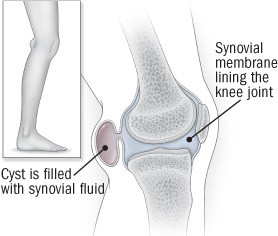
What are somatic workouts?

How to curb your stress eating

How to spot Parkinson’s disease symptoms

8 simple ways to reduce ultra-processed foods in your diet

Heart failure symptoms in women: How they’re different

GERD diet: Foods to avoid to reduce acid reflux

Strong is the new skinny

Everyday habits that sneakily weaken your bones

Don’t wait to get help for back pain

Correcting how you walk may ease osteoarthritis knee pain
Diseases & Conditions Archive
Articles
Can medication tame chronic inflammation?
Many medications are effective for managing (but not preventing) chronic inflammation. The most common medications include nonsteroidal anti-inflammatory drugs (NSAIDs), corticosteroids, immunosuppressants, and biologics. These drugs can have dangerous side effects, so a physician must oversee their use. Other important ways to manage chronic inflammation include treating underlying causes of inflammation and living a healthy lifestyle, such as cutting out processed foods and taking a 10-minute walk each day. A healthy lifestyle may also help prevent chronic inflammation from developing in the first place.
Save the trees, prevent the sneeze
In many places in the United States, spring is starting earlier— which means more pollen and a longer allergy season. Fortunately, there are steps you can take to manage the impact of seasonal allergies and reduce sneezing and itchy eyes.
Ask the doctor: How do you treat a Baker's cyst?
I have a Baker's cyst in my right knee. It has been drained twice and recurred. Are there any other treatments for it?
Harvard Health Ad Watch: A blood thinner winner?
Medicines known as blood thinners are prescribed as long-term treatment to avoid initial or recurring blood clots that could cause serious complications. What does an ad in heavy rotation about the brand name blood thinner Eliquis get right and what else do you need to consider?
Considering a gluten-free diet
People with celiac disease must avoid all foods that contain the protein gluten, found in wheat, barley, rye, and other grains. Those with nonceliac gluten sensitivity can also benefit from a gluten-free diet.
On call: Causes of cold feet
Common causes of cold feet include clogged arteries in the legs (peripheral artery disease), low body fat, Raynaud's syndrome, and nerve damage.
Is there help for my dry eyes?
A reduction in tear production can lead to a condition called dry eye syndrome. It causes the eyes to become dry and irritated and may be prompted by aging, medication, or hormone shifts. Eye drops and ointments can help relieve symptoms.
The big pain of small-fiber neuropathy
People sometimes experience a sudden tingling or numbness in the feet or hands that goes away. But if the problem keeps occurring, followed by painful or burning sensations, this could be a sign of small-fiber neuropathy. While not life-threatening, small-fiber neuropathy should always be checked out, as it could be a symptom of something more serious.
Do allergies make snoring worse?
Allergies that cause nasal congestion, sneezing, and a runny nose (what doctors call allergic rhinitis) can cause more frequent and louder snoring. Treating allergic rhinitis can reduce snoring and other symptoms related to poor-quality sleep.
Tips to manage tinnitus
Tinnitus is an internal high-pitched ringing, whooshing, or hissing noise. The condition can make it hard to concentrate, reduce sleep quality, and cause irritability, nervousness, anxiety, depression, or feelings of hopelessness. Methods for easing tinnitus symptoms include treatment of underlying conditions, trigger avoidance, hearing aids, sound masking devices, exercise, stress reduction, and social connection. Certain programs can also help reduce tinnitus symptoms, such as cognitive behavioral therapy, group support, and tinnitus retraining therapy.

What are somatic workouts?

How to curb your stress eating

How to spot Parkinson’s disease symptoms

8 simple ways to reduce ultra-processed foods in your diet

Heart failure symptoms in women: How they’re different

GERD diet: Foods to avoid to reduce acid reflux

Strong is the new skinny

Everyday habits that sneakily weaken your bones

Don’t wait to get help for back pain

Correcting how you walk may ease osteoarthritis knee pain
Free Healthbeat Signup
Get the latest in health news delivered to your inbox!
Sign Up











